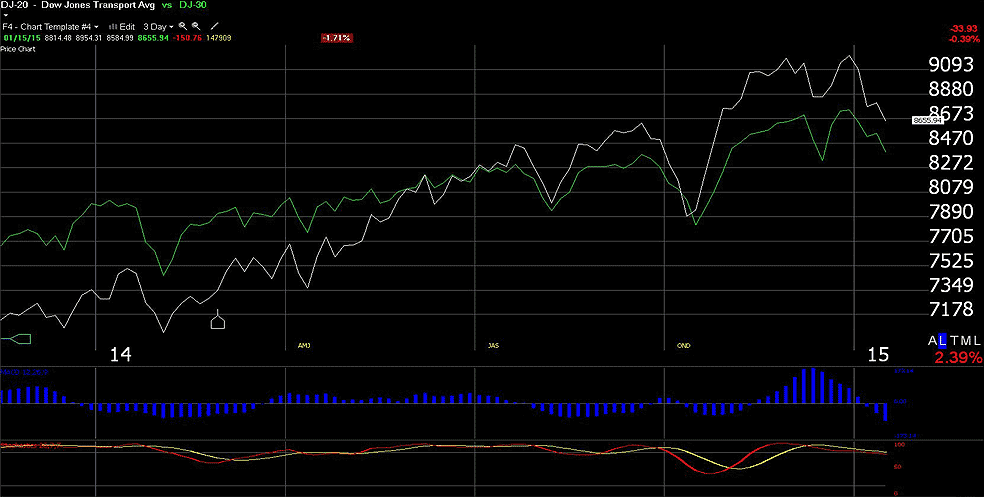I believe the decision yesterday by the Swiss Central Bank to end its pegged link to the Euro and change its interest rate to a negative .75% is as a seismic event in the history of European monetary integration.
Many financial journalists are commenting accordingly on many media channels that this event is one further step towards the eventual demise of the Euro.
Within hours of the Swiss move two large foreign exchange brokers, FXCM and Excel Markets, went bust due to losses suffered by clients. It is expected that a number of big European hedge-fund traders will quickly follow. All eyes will now be on Swiss and European banks Friday to see if unexpected currency loses will depth-charge their already weakened balance sheets.
This is how AFP.com described the reaction of some Swiss nationals yesterday:
"It's like Christmas all over again!" enthused Vanessa, as she joined a swelling queue outside a currency exchange office in downtown Geneva Thursday.
The 28-year-old hospital orderly was one of many across Switzerland rushing to cash in on a soaring Swiss franc.
Minutes after a shock announcement from the Swiss central bank that it was abandoning the minimum rate of 1.20 francs against the euro, the safe haven Swiss currency strengthened almost 30 percent to 0.8517 against the common European currency before easing back to 1.0421.
"I heard the news this morning. I'm so happy!" Vanessa, who refused to give her last name, told AFP outside of one of many mobbed exchange offices in Geneva.
She has reason to be ecstatic: she is one of some 280,000 people working in Switzerland but living and paying bills in eurozone countries France, Germany or Italy.
These so-called "frontaliers", or border-crossers, are the biggest winners in Thursday's Swiss franc surge, seeing their incomes jump 30 percent in the blink of an eye.
Vanessa said she was contemplating "changing all of my Swiss franc savings into euros".
Other frontaliers were also celebrating Thursday, but said they would not immediately buy large amounts of euros.
Panic Buying?
"For those of us living in France and working in Switzerland, this is great!" said Doina Bancila, a 40-year-old bank employee.
"But I don't want to buy euros in a panic. I'll wait for next week or the week after to see how the situation evolves," she told AFP.
Gaelle Voisin, another resident of France, meanwhile said she had only learned about the bonanza she had in store when she turned up at the exchange office.
"I was really surprised to see all of these people here," said the 40-year-old radio presenter, adding she at first thought the crowd was waiting to buy the latest copy of Charlie Hebdo, in tribute to the 12 people killed in last week's attack on the satirical weekly's Paris office.
"I was just going to do a simple exchange, and then this. It's good for me, and for all the French people working in Switzerland," she said.
Many Swiss residents were also rubbing their hands over their booming currency, envisioning vacations abroad and perhaps buying up cheaper real estate on the other side of the border.
"This could mean we can take cheaper euro vacations ... and if you want to buy a secondary home in France, this is a good thing," 70-year-old wealth manager Charles Gutowski told AFP.
But, he added, the Swiss central bank itself will lose a fortune, since it has huge foreign currency reserves, and large Swiss companies will take a beating.
"This is going to cause a lot of trouble," he said.”
This new policy by the Swiss Central Bank makes it more likely that the European Central Bank will indeed introduce some degree of quantitative easing when it meets towards the end of January.
Renewed European currency instability is bound to have a negative effect on Euro bond rates and the last thing Euroland needs is spiraling sovereign interest rates. Such a development would put already struggling parliamentary budgets in Ireland, Portugal, France, Italy and Spain under severe pressure and could be the straw that breaks the camel’s back of continued Euro integration. The ECB will definitely prevent this happening if at all possible.
Dow Theory Sell Signal in the Making
The stock markets continue to weaken.
The comparison chart below of the Dow Transports and the Dow Industrials show a definite short term downtrend with lower highs and lower lows in evidence on both.
The indices are congruent so the trend is gaining momentum.
The Dow Transports have broken the previous lows of October and December of last year.
Should the Industrials do the same and break the 17069 intra-day low of mid-December we will have a Dow Theory sell signal, which will be bearish.
The McClennan Summation which is an excellent tool for identifying trend indicates that the current trend could have legs. Thus while stochastics are indicating oversold levels, in all probability if the key level mentioned above on the Dow Industrials is breached, the current bearishness will continue.
Charts: Courtesy of Worden Bros.
Article Courtesy of AFP.Com 15th. January 2015.
© Christopher M. Quigley 15th. January 2015
Related:
What Is the Yield Curve Telling Us About the Future?









